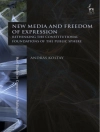Why does the American political system work the way it does?
After observing the strains of intense partisanship and divided government, many Americans are wondering what logic, if any, can be found in politics. With both sides of the political spectrum being so different from one another and the scales often tipping in the favor of the opposing party by a fraction of a percentage point, how can anyone work the system to their advantage?
With fresh analysis of the 2022 midterm election results, the Eleventh Edition of bestselling textbook The Logic of American Politics provides students with the tools they need to make sense of our government today. Weaving together historical context, contemporary politics, and a ‘toolkit’ of institutional design concepts, the authors build an understanding of political institutions and practices as imperfect solutions to collective action problems.
विषयसूची
Preface
Acknowledgments
A Note to Students
Chapter 1. The Logic of American Politics
Part I. The Nationalization of Politics
Chapter 2. The Constitution
Chapter 3. Federalism
Chapter 4. Civil Rights
Chapter 5. Civil Liberties
Part II. The Institutions of Government
Chapter 6. Congress
Chapter 7. The Presidency
Chapter 8. The Bureaucracy
Chapter 9. The Federal Judiciary
Part III. The Public’s Influence on National Policy
Chapter 10. Public Opinion
Chapter 11. Voting, Campaigns, and Elections
Chapter 12. Political Parties
Chapter 13. Interest Groups
Chapter 14. Media
Part IV. Conclusion
Chapter 15. Is There a Logic to American Policy?
Reference Material
Glossary
Notes
Index
About the Authors
लेखक के बारे में
Timothy R. Johnson is Horace T. Morse Alumni Distinguished Professor of Political Science and Law at the University of Minnesota, former co-editor of the Law and Society Review, and former chair (2016–2017) of the Law and Court’s Section of the American Political Science Association. He is the co-author of Oral Arguments and Coalition Formation on the U.S. Supreme Court, co-editor of A Good Quarrel: America’s Top Legal Reporters Share Stories from Inside the Supreme Court, author of Oral Arguments and Decision Making on the U.S. Supreme Court, and co-author of Religious Institutions and Minor Parties in the United States. The National Science Foundation has supported five of his research projects. Beyond research, he teaches courses on constitutional law, civil liberties, judicial process, and American politics. He has won college-level and university-wide teaching awards and, in 2018, was named a semi-finalist for the prestigious Robert F. Cherry Award for Great Teaching and won the American Political Science Association’s Distinguished Teaching Award.












